#ElectricVehicle
GM Increases Investment Into Electrification, Stellantis Promises Four New EVs
There is plenty of electrification news this week, despite the brunt of consumers remaining seemingly disinterested in the automotive segment that’s entirely dependent upon batteries. General Motors recently announced that it would be increasing its EV investments through 2025 to $35 billion, noting that some amount of the funding will also be going toward autonomous vehicle development.
Meanwhile, Stellantis confirmed that it’s planning a quartet of battery-driven automobiles offering more utility than the pint-sized Fiat 500e. Those vehicles aren’t supposed to see assembly until 2024 and there are lingering questions about where the firm plans on building battery plants. But the UILM union has confirmed that the upcoming models are likely to be midsized and built at the company’s Melfi plant in Italy.
2022 Hyundai Ioniq 5 Fast Charging CUV Exposed
The 2022 Hyundai Ioniq 5 ultra-fast charging crossover utility vehicle was revealed yesterday, highlighting its Electric-Global Modular Platform (E-GMP).
Ioniq 5’s 300-mile range, and 10-to-80 percent ultra-fast charging in 18 minutes showcases E-GMP technology.
VW CEO Suggests Fuel Cell Tech Isn't the Answer, No Duh
Volkswagen Group CEO Herbert Diess was bashing hydrogen-powered vehicles on Twitter this week in an attempt to convince those vying for Germany’s chancellorship not to embrace the technology. With Angela Merkel stating that she’ll not seek a fifth term, the country is open for new leadership and VW wouldn’t want them to take a liking to hydrogen power when it has placed all of its eggs into the electric vehicle basket.
“The hydrogen car has been proven NOT to be the climate solution,” Diess wrote on Twitter in German. “In transportation, electrification has prevailed. Sham debates are a waste of time. Please listen to the science!”
2022 Subaru Solterra ESUV Proclaimed
In 2022, the Subaru Solterra electric SUV will go on sale. Another Subaru-Toyota joint venture, it’ll roll on the new e-Subaru global platform.
2023 Cadillac Lyriq is Almost Here
Today the 2023 Cadillac Lyriq made its production debut. If this is the highlight of a century of innovation, what’s Cadillac been doing the rest of the time? Cadillac’s luxury electric SUV is starting a new era ahead of schedule. You can place your order in September for a 2022 first-half delivery.
2022 Mazda MX-30 EV Arrives in California This Fall, Rotary PHEV to Follow
Mazda’s first electric vehicle will arrive in the United States later this year, though technically it’s just going to be California while the manufacturer considers the viability of selling to regions beyond the West Coast. The rollout makes sense as America’s 31st state has been hungrier for electric vehicles than other parts of the country.
But the 2022 MX-30 will only begin its life here as a battery-powered product. Mazda has said it’s also planning to sell a plug-in-hybrid version of the crossover equipped with a gasoline-dependent rotary engine/generator sometime in 2022, making it something that might be able to stand on its own in areas where the distance between charging points makes owning a pure EV unpalatable.
Watt EV Coupe – Will It Make It to Production or Not?
The Watt Electric Vehicle Company (WEVC) has unveiled the EV Coupe, a classic shape inspired by the 1955 Porsche 356A. WEVC is not connected with Porsche AG. WEVC does not imply that any of their products are a product of Porsche AG, nor are the Porsche or 356 names used or associated with WEVC products. So why would we think WEVC is on a slippery slope?
Less Than ZeroLabs Aims to Turn Old Broncos Into EVs
ZeroLabs Automotive is re-engineering 1965-77 Ford Broncos as electric vehicles, with the mantra of “the past we love” and “the future we need”. Net-zero emissions aside, Hawthorne, California’s latest tech start-up, ZeroLabs envisions themselves as the savior of tens of thousands of classic cars that would otherwise be rendered obsolete and left behind.
Fisker Goes Public With Spartan Energy SPAC
Despite having never manufactured a single production model, Fisker Inc. is a company reportedly worth billions. On Thursday, the prospective automaker indicated that it was ready to see how much more it could get via an announcement that it had officially completed its business combination Spartan Energy Acquisition Corp — a special purpose acquisition company — and was ready to be publicly traded.
Better call your broker.
Listen, if we could explain to you why technology firms with no product lineups or revenue sources are eligible to receive cash enemas from the stock market, we absolutely would. But the amount of mental gymnastics required to rationalize an answer has surpassed what your author can entertain without risking his own sanity. Special purpose acquisition companies (aka SPACs or “blank check” firms) have exploded in popularity and allowed dozens of businesses going public to rake it in via reverse-mergers this year. Whether it’s economic voodoo or sheer madness, it has become the status quo for IPOs seeking to raise insane amounts of money.
Volkswagen Explains Its Complicated Relationship With Electricity and Fuel
Like most legacy automakers, Volkswagen is casually walking back promises of electrification. As with self-driving cars, the technology behind new-energy vehicles is taking longer to mature than the industry would like. Meanwhile, the market — skewed as it is toward larger models — has been about as cooperative as a sugared-up child come bedtime.
Despite governments around the world incentivizing the sale of EVs, they’re still but a fraction of whole.
With the pandemic undoubtedly discouraging consumers from purchasing big-ticket items, electric vehicle sales aren’t presumed to make a lot of headway in 2020, either. We recently learned that some of the promises made by Ford and General Motors in regard to electrification were overblown by corporate messaging. In truth, they both plan on remaining heavily dependent upon truck and crossover sales for several more years.
However, Volkswagen seemed to be betting everything it had on battery technology. In the wake of its 2015 diesel emission scandal, VW was one of the first companies to promise widespread electrification by suggesting it would build one million EVs by 2023 — with 70 new green models introduced by 2029. The past year has seen the automaker issue qualifying remarks that leave us feeling dubious about its end goal.
Hyundai Investigating Kona EV "Explosion" in Canada
Over the weekend, CBC reported a Hyundai Kona Electric had exploded in Montreal — blowing the roof and door off its owner’s garage. Piero Cosentino claimed he saw black smoke coming from the building on Friday afternoon and quickly turned off the breaker to avoid further damage. Unfortunately that was enough, the car became engulfed in flames and popped.
“If we were in front of the garage door, we could have been in the hospital,” Cosentino said.
FCA Putting $788 Million Behind New 500 EV, Small Battery Platform
Fiat Chrysler will invest $788 million to build a production line for the new 500 electric, according to the company’s European CFO Pietro Gorlier. An extension of automaker’s plan to to dump 5 billion euros ($5.6 billion) into Italy, the deal makes good on earlier promises that the automaker would establish a dedicated small battery-electric vehicle platform.
Every Bolt in GM's First Shipment to Korea Was Reserved Within Hours
General Motors began taking pre-orders in South Korea last week for the all-electric Bolt. In under two hours, the entirety of the first shipment was spoken for. By the end of that day, March 17, more than 2,000 additional orders had been placed, proving — once again — that GM is killing it in Asia and Koreans are tech-obsessed.
Incredibly, most of those customers hadn’t even laid eyes on the vehicle. The Bolt doesn’t make its official Korean debut until March 30th, when it will appear at the 2017 Seoul Motor Show.
Ford Puts Faith in an Electrified Future With Hybrid Mustang, F-150, 300-Mile EV
Ford Motor Company announced today that it is committing itself fully to the development of electric vehicles, including a hybridized Mustang and F-150 pickup, a small electric crossover, and a fully-autonomous hybrid unit. Company CEO Mark Fields expressed his faith in the future of electric cars and Ford’s intention of bringing 13 new electrified models to the global market within the next five years.
“The era of the electric vehicle is dawning and we at Ford plan to be a leader in this exciting future,” Fields said. “Leading in electrification, in autonomy, and also connectivity are critical as we expand to be both an auto and a mobility company.”
Faraday Future-designed 'Self-Driving' Car Was Piloted by Remote Control
Faraday Future has yet to provide anyone the opportunity to say anything strictly positive about it this year. Even today, when there is the seed of good press stemming from a recent teaser video of its FF Prototype, the company remains mired by new allegations that highlight just how absolutely wrong everything about it appears to be.
A mountain of debt, an unsettling corporate structure, mounting lawsuits, staff abandonment, and problems with suppliers all coalesce to paint a grim portrait of the company as it draws nearer to its important reveal at January’s Consumer Electronics Show.
However, the details of a recent media expose wouldn’t look out of place in a sitcom.




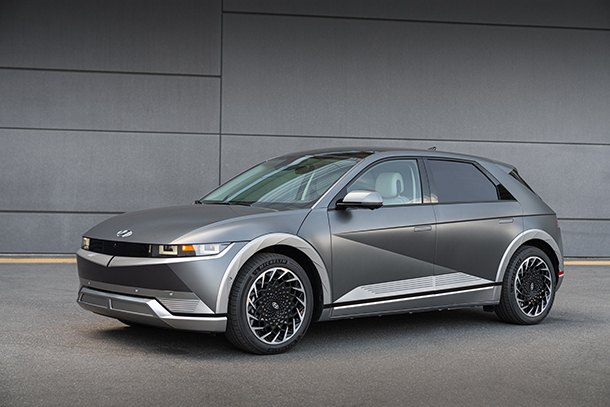

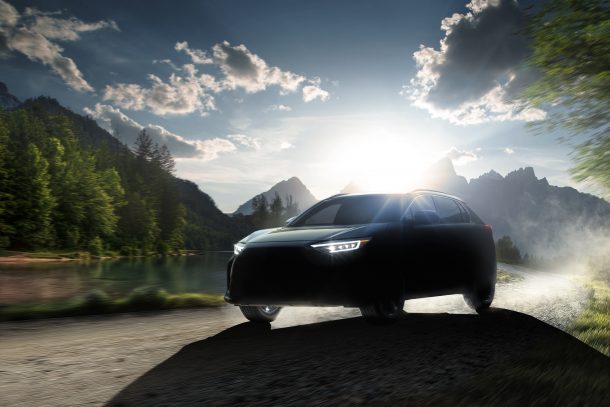


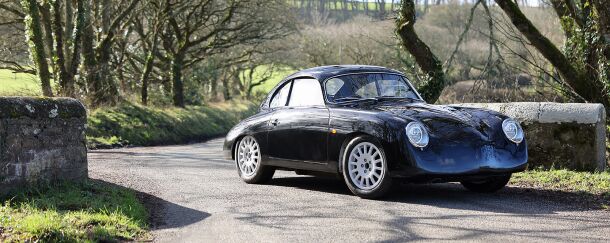



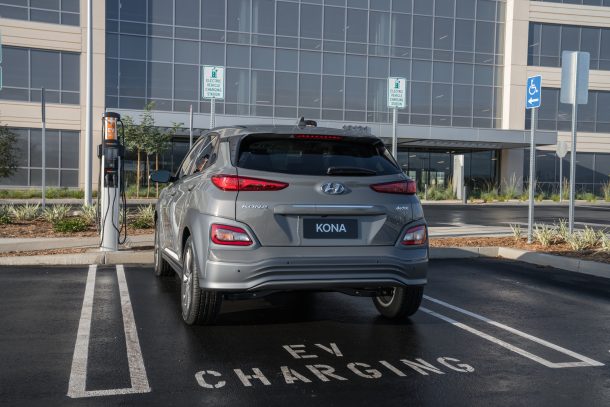

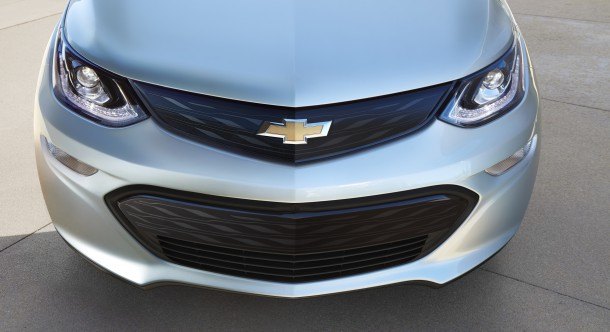














Recent Comments